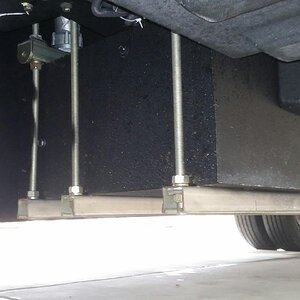Kevin D Pem
RVF 5K Club
- Joined
- Jul 29, 2020
- Messages
- 5,290
- Location
- AZ
- RV Year
- 1984
- RV Make
- Alpinelite
- RV Length
- 26'
- TOW/TOAD
- 2016 Ram 1500
- Fulltimer
- Yes
It is hard to get one opinion! Mine varies from yours.It is hard to beat the absorption fridges and because they are weak on cooling, they have a lot of insulation. People don't like them because they don't work well in the heat. Same as heat pumps don't work well in the cold. So far, I prefer them. The jury is still out on the 12 v units and they have been experiencing problems with the compressors. I will let someone else be the guinea pig. Putting residential fridges in requires modifications many are not capable of and many don't want to pay for. Then you are stuck with 120v only and it is inefficient to convert to 12v and then convert back to 120v for the times you are not plugged in to shore power or generator. It is not a one size fits all and each person must find their niche. Hard to get just one answer from a multitude of people.
Reliable operation is the number one reason to buy one over the other.
I like my ice-cream frozen, and my milk cold! I want it that way even with summer temperatures. For that reason I find adsorption or absorption refrigeration unreliable, at best. I was given a 12v compressor fridge and put it to the test by running it outside in the shade! The conclusion of the experiment was to give it to someone with a van.
Furthermore the COP of propane refrigeration is so low that anything is better. I did the research!
My fridge fit in the hole of the old propane box and simply strapped I place. The choice was made based on cost, however. Replacement cost of original VS. 110vac fridge including the support infrastructure (solar controller, panels, inverter, and battery) needed to keep the 110 unit going at all times. The propane unit lost the price war by a whopping 400USD. And solar can be purchased at a fraction of what I paid at the time. With the benefits of 110 power for the rig.











